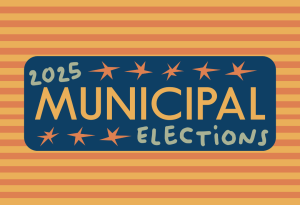Opinion: Defunding Reproductive Healthcare Isn’t the Answer to Stopping Abortion
October 29, 2020
Reproductive health care is an issue Americans feel strongly about, especially with the upcoming election. Conservative politicians have a history of fighting to defund providers of reproductive health services, such as Planned Parenthood, because of their religious objections to abortion. Most American women generally agree that reproductive health care is important. Eighty-five %of women polled in a 2019 Kaiser Family Foundation survey support government funding for reproductive health services for low-income women. But when abortion is introduced into the conversation, the numbers are split. In 2019, 38% of Americans said that abortion should be illegal in all or most cases, Pew Research Center . Abortion is extremely divisive and tends to dominate the conversation around reproductive health care. Many politicians and voters alike would like to see reproductive health services “defunded” but what does defunding reproductive health care look like and what does it mean for Americans who need these services?
Planned Parenthood is on the front lines of the debate surrounding reproductive health care and abortion. There are a lot of misconceptions about Planned Parenthood and other reproductive health clinics, so let’s get the facts straight. First, only 3 % of health services provided by Planned Parenthood are abortions. Planned Parenthood doesn’t only provide abortions but also offers services such as birth control, breast and cervical cancer screenings, domestic violence support, STD testing, hormone therapy and more. Second, the federal government doesn’t just write a check to Planned Parenthood. The majority of federal funding the organization receives is through Medicaid and Title X. At least 60% of patients rely on these public health programs. Additionally, federal dollars do not go toward abortions. The Hyde Amendment, passed in 1976, blocks Medicaid from being used for abortion services. Finally, most patients who rely on Planned Parenthood are low-income. Defunding Planned Parenthood and other reproductive health clinics would affect people in rural areas, people of color and those with low incomes. Invasive legislation that targets clinics actively strips disadvantaged people of health care.
Defunding reproductive health care doesn’t make much sense considering access to reproductive health care decreases the number of unplanned pregnancies. Abortion rates have been declining for the past 30 years and fell 20 %from 2011-17. Let’s be clear, abortion rates are not declining because of restrictive legislation. Birth and pregnancy rates are declining in the United States due to many factors, one being accessible reproductive health care. If anti-abortion politicians were really “pro-life” they would actively fund reproductive health care, not defund it.
Even if Roe v. Wade is overturned and reproductive health care is completely defunded, abortions won’t stop. In countries where abortion is illegal, women are still getting abortions, but they are often extremely dangerous and can result in death. A 2017 global report on abortion by the Guttmacher Institute found that 25 million unsafe abortions are performed annually leading to about 22,800-31,000 preventable deaths each year. When abortion is not accessible, women die. Conservative politicians are not obviously pro-life if their solution is to outlaw abortion.
The effects of lack of reproductive health care can be seen right here in Appalachia. The closest Planned Parenthood clinics to Boone are hours away, in Asheville and Winston-Salem. The region historically has higher rates of poverty and unemployment than the rest of the country. According to a 2018 CDC report on infant mortality, low-income mothers often do not receive proper prenatal care, therefore increasing the risk of infant death. Low-income communities also have higher rates of unplanned pregnancies often because contraceptives are not accessible. Government funded reproductive health clinics offer affordable and free prenatal care and contraceptives for people in need.
Accessible reproductive health care is important. Politicians who are attempting to defund reproductive healthcare and restrict abortion are not pro-life, they’re pro-control. Defunding these programs, like Planned Parenthood, would do more harm than good.













